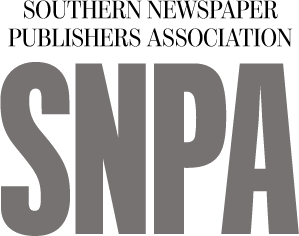Supreme Court hears arguments about NLRB recess appointments
As previously reported, the U.S. Supreme Court agreed to hear NLRB v. Noel Canning. That case was argued before the Supreme Court on Jan. 13. The court is reviewing whether President Obama's recess appointments to the NLRB were unconstitutional.
The U.S. Court of Appeals for the D.C. Circuit ruled that the president's January 2012 NLRB appointments were not made during "the Recess" as the term is used in the Constitution. Additionally, the vacancies filled by the president's recess appointments did not "happen" during "the Recess" of the Senate, as required under the Constitution. The D.C. Circuit ruled that the Constitution's use of the term "the Recess" could only mean the inter-session break that occurs between Senate sessions, and not an intra-session break during a session.
Keep in mind that, in the early days of our country, recesses between Senate sessions were often six to nine months long. The recess clause was intended to provide continuity of government during these long recesses. Not only were recesses very lengthy, but transportation and communication were also much more primitive.
The unconstitutional appointments gave the NLRB an extreme left quorum that allowed it to make hundreds of pro-union decisions. There are 108 pending cases in Federal Appeals Courts challenging decisions by the NLRB since January 2012. Hundreds of decisions made by the NLRB recess appointees that have not risen to federal appeals courts are also in question.
This writer will go out on a limb and state that he believes the Supreme Court will uphold the D.C. Circuit's decision.
 |
"Persuader Rule" postponed until March 2014
The Department of Labor pushed back from November 2013 to March 2014 its target date for publishing its final rule regarding
the "Advice Exception" to the so-called "Persuader Rule" in the Labor/Management Reporting Disclosure Act of 1959 (LMRDA). Currently, the LMRDA provides that employers must report to the DOL each
time they engage a consultant to persuade employees directly or indirectly regarding employees' rights to organize or bargain collectively. A failure to comply can result in jail time and a $10,000 fine.
However, the LMRDA carves out from the reporting requirements an "Advice Exception," which has consistently been interpreted to exclude an employer's engagement of an attorney to assist them with organizing campaigns, so long as the attorney has no direct contact with employees.
The proposed rule currently narrows the Advice Exception significantly. Under the proposal, employers who engage attorneys to assist in organizing campaigns will now have to file publicly reports with the government detailing all the labor work that the law firm performs for the employer.
The American Bar Association and the Association of Corporate Counsel have opposed the rule, stating that it is inconsistent with the rules of professional conduct pertaining to lawyer/client confidentiality. The proposed rule forces attorneys to disclose privileged attorney/client information and will discourage employers from using counsel during union organizing campaigns.
Like the NLRB's "quickie election" rule (now withdrawn), this proposed rule of the DOL is designed to squelch employer First Amendment protected speech during union campaigns. Because of the failure to get Congress to pass the so-called "Employee Free Choice Act," which would have eliminated NLRB elections, the NLRB and the DOL tag-teamed with two proposed administrative rules in an attempt to silence any opposition to union organizing.
NLRB embarks upon adventurism
On Dec. 30, 2013, the Seattle Region of the NLRB issued a Complaint and Notice of Hearing in a case involving Pacific Publishing Company and Teamsters District Council No. 2, Local 747-M. On the surface, the complaint alleges that the company unlawfully withdrew recognition from Teamsters District Council 2.
On Jan. 25, 2013, Pacific Publishing Company did withdraw recognition from the union because it had actual, certain knowledge that the union had lost majority support. A majority of employees had signed documents objectively stating that they no longer wanted to be represented by the union. Under existing case law (Levitz Furniture), an employer is privileged to withdraw recognition when it has actual, certain knowledge that the union has lost majority status.
When the regional office of the NLRB investigated the union's unfair labor practice charges, it did so thoroughly over a four-month period. At the end of the investigation, NLRB Regional Director Ronald Hooks dismissed all charges against Pacific Publishing Company. The union then appealed the dismissal to the NLRB General Counsel's Office of Appeals in Washington, D.C.
After languishing for three months, the Office of Appeals ordered the regional director in Seattle to issue the Complaint and Notice of Hearing. What is significant is the remedy sought:
The General Counsel additionally seeks to urge the Board to limit the rule enunciated in Levitz Furniture, 333 NLRB 717 (2001), precluding post-withdrawal pro-union evidence to cases involving an "anticipatory withdrawal." The General Counsel asserts it is appropriate for the Board to reconsider and overrule AMBAC, 229 NLRB 505 (1990), and related Board decisions, and adopt the rule that post-withdrawal evidence of support for a union within a reasonable time following withdrawal of recognition may deprive an Employer of the privilege to withdraw recognition from the union. Under the General Counsel's proposed new rule, an Employer that intends to withdraw recognition based on objective evidence of "actual loss" would have an affirmative obligation to immediately inform the union of its intention to withdraw recognition, and to maintain the status quo for a reasonable period. The presumption of majority union support would be deemed to continue, unless and until the incumbent union fails to demonstrate continued majority support during a reasonable period following the Employer's announcement that it intends to immediately withdraw recognition. [Emphasis added]
This is a sea change in the law – and proof positive that the newly confirmed NLRB General Counsel Richard Griffin will be embarking upon legal adventurism in 2014 and beyond. I will keep you advised of the status of this case. (Editor's Note: The Zinser Law Firm, P.C., is representing Pacific Publishing Company).
L. Michael Zinser is the founding partner of The Zinser Law Firm in Nashville, Tenn. The firm, which has a heavy concentration of clients in communications media, represents management in the area of labor and employment. Zinser can be reached at (615) 244-9700 or mzinser@zinserlaw.com.






